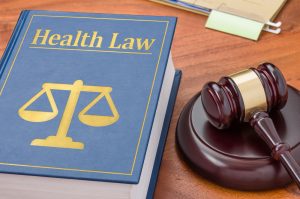Understanding Legal Nurse Consulting and its Role in Malpractice Cases
Key Takeaways
- Legal nurse consulting provides valuable expertise to the legal team in malpractice cases.
- Legal nurse consultants enhance the understanding of medical concepts and analyze medical records for potential negligence.
- They play a key role in assessing the standard of care and providing expert testimony in court.
- Admissibility of expert opinions and navigating complex medical terminology are challenges faced by legal nurse consultants.
- Maintaining objectivity and adhering to ethical considerations are important in legal nurse consulting.
What is Legal Nurse Consulting?
The Definition of Legal Nurse Consulting
Legal Nurse Consulting is a specialized field within the nursing profession that combines medical expertise with legal knowledge. As a Legal Nurse Consultant, my role is to assist attorneys in understanding complex medical concepts and applying them to legal cases. I provide valuable insights and analysis of medical records, helping to identify potential negligence and assess the standard of care in malpractice cases.
In addition to my medical expertise, I also play a crucial role in providing expert testimony in court. I present my findings and opinions based on my analysis of the medical records, helping the court and the jury understand the medical aspects of the case.
To summarize, Legal Nurse Consulting is a vital component in the legal team’s pursuit of justice in malpractice cases. I bring a unique perspective and expertise that bridges the gap between medicine and law, ensuring a comprehensive understanding of the medical aspects of the case.
The History of Legal Nurse Consulting
Legal Nurse Consulting has a rich history that dates back several decades. It emerged in the 1980s as a specialized field within the nursing profession. Legal and medical professionals recognized the need for nurses with expertise in both healthcare and the legal system to assist in medical malpractice cases. The field has since grown and evolved, with legal nurse consultants playing a crucial role in the litigation process.
One of the pioneers in legal nurse consulting was Anita Dorr, a registered nurse who became the first nurse consultant for a law firm in the 1970s. Dorr’s work paved the way for the development of the field and highlighted the value of nurses’ unique perspective in legal cases. Since then, legal nurse consulting has gained recognition and acceptance as a valuable resource in the legal and healthcare industries.
In recent years, the demand for legal nurse consultants has increased significantly. This can be attributed to the growing complexity of medical malpractice cases and the need for specialized knowledge and expertise. Legal nurse consultants bring a unique set of skills and experience to the table, combining their clinical expertise with an understanding of the legal system to provide valuable insights and support to attorneys and their clients.
The Role of Legal Nurse Consultants
As a Legal Nurse Consultant, my role is to provide valuable expertise and support to the legal team in medical malpractice cases. I bring a unique perspective as a registered nurse with specialized training in legal nurse consulting. My primary responsibility is to bridge the gap between the medical and legal fields, helping the attorneys understand complex medical concepts and terminology.

In addition, I play a crucial role in identifying and analyzing medical records to determine if there is potential negligence or deviation from the standard of care. This involves carefully reviewing the medical documentation, looking for any inconsistencies or errors that may have contributed to the patient’s harm.
Once potential negligence is identified, I assist in assessing the standard of care provided by healthcare professionals involved in the case. This requires a deep understanding of medical guidelines and practices, as well as the ability to compare the actions of the healthcare providers to these standards.
When necessary, I am also prepared to provide expert testimony in court. This involves presenting my professional opinion based on my expertise and the evidence gathered during the case. My testimony helps the court understand the medical aspects of the case and evaluate the quality of care provided.
In summary, as a Legal Nurse Consultant, I serve as a vital resource for the legal team, bringing my nursing knowledge and expertise to help navigate the complexities of medical malpractice cases. To learn more about the role of a legal nurse, please review AIHCP’s Legal Nurse Consulting Program.
The Importance of Legal Nurse Consulting in Malpractice Cases
Enhancing the Legal Team’s Understanding of Medical Concepts
As a legal nurse consultant, my role is to bridge the gap between the medical and legal worlds. One of the key ways I contribute to the legal team is by enhancing their understanding of complex medical concepts. Medical terminology, procedures, and diagnoses can be overwhelming for attorneys who may not have a background in healthcare. By providing clear explanations and breaking down medical jargon, I help attorneys grasp the medical aspects of a case.
In addition to explaining medical concepts, I also assist in organizing and analyzing medical records. This involves identifying relevant information, such as patient history, lab results, and treatment plans. By carefully reviewing these records, I can identify potential areas of negligence or deviations from the standard of care.
To ensure a comprehensive understanding of the medical aspects of a case, I collaborate closely with medical experts. This collaboration allows me to tap into their specialized knowledge and gain insights that can strengthen the legal team’s arguments. Together, we analyze the medical evidence and discuss the implications for the case.
In summary, my role as a legal nurse consultant is to enhance the legal team’s understanding of medical concepts, analyze medical records for potential negligence, and collaborate with medical experts to build a strong case.
Identifying and Analyzing Medical Records for Potential Negligence
As a legal nurse consultant, my role in malpractice cases involves the crucial task of identifying and analyzing medical records for potential negligence. This process requires a meticulous examination of the patient’s medical history, treatment plans, and any relevant documentation. Negligence is a key concept in malpractice cases, and it refers to the failure of a healthcare professional to provide the standard of care expected in a particular situation.
To effectively identify potential negligence, I employ a systematic approach that includes the following steps:
- Reviewing the medical records: I carefully review the patient’s medical records, including physician notes, laboratory results, imaging studies, and medication records. This comprehensive review helps me identify any deviations from the standard of care.
- Analyzing the treatment plans: I analyze the treatment plans implemented by healthcare providers to determine if they were appropriate and followed the established protocols.
- Comparing with expert opinions: I consult with medical experts to obtain their opinions on the adequacy of the care provided. Their expertise helps me assess whether there were any deviations from the expected standard of care.
By conducting a thorough analysis of the medical records, I can identify potential instances of negligence and provide valuable insights to the legal team.
Assessing the Standard of Care in Malpractice Cases
As a legal nurse consultant, my role in malpractice cases involves assessing the standard of care provided by healthcare professionals. This critical step requires a thorough evaluation of the healthcare provider’s actions and decisions in light of accepted medical practices and guidelines.
To assess the standard of care, I employ a systematic approach that includes:
- Reviewing relevant medical literature and guidelines to establish the expected standard of care for the specific medical condition or procedure.
- Analyzing the medical records and documentation to identify any deviations from the standard of care.
- Consulting with medical experts to gain insights into the appropriate standard of care and evaluate the defendant’s actions.
By conducting a comprehensive assessment of the standard of care, I can provide valuable insights to the legal team regarding the potential negligence or deviation from accepted medical practices. This analysis forms a crucial foundation for building a strong case and seeking justice for the injured party.
Tip: It is important to consider both the legal and medical aspects when assessing the standard of care in malpractice cases. Collaboration with medical experts and staying updated with current medical literature are essential for an accurate evaluation.
Providing Expert Testimony in Court
As a legal nurse consultant, providing expert testimony in court is a crucial aspect of my role. When called upon to testify, I am responsible for presenting my professional opinion based on my expertise and analysis of the medical records. Accuracy and clarity are paramount in delivering testimony that is both persuasive and credible.

To effectively present my findings, I follow a structured approach. First, I thoroughly review and analyze the medical records, ensuring that I have a comprehensive understanding of the case. Next, I prepare a detailed report summarizing my findings and opinions. This report serves as a guide during my testimony, allowing me to present the information in a logical and organized manner.
During my testimony, I strive to communicate complex medical concepts in a way that is easily understandable to the judge and jury. I use clear and concise language to explain the medical facts and provide context for my opinions. Additionally, I rely on visual aids such as diagrams or charts to enhance comprehension and reinforce key points.
It is important to note that providing expert testimony requires a high level of professionalism and objectivity. I must remain impartial and avoid any bias or personal opinions. My role is to provide an expert analysis based on the available evidence and medical standards of care. By adhering to these principles, I contribute to the fair and just resolution of malpractice cases.
The Process of Legal Nurse Consulting in Malpractice Cases
Initial Case Evaluation and Screening
When conducting the initial case evaluation and screening as a legal nurse consultant, I play a crucial role in determining the potential merits of a malpractice case. This process involves carefully reviewing the available information, including medical records, incident reports, and any relevant documentation. By analyzing the facts and identifying key issues, I can provide valuable insights to the legal team.
To ensure a comprehensive evaluation, I follow a systematic approach that includes:
- Gathering all pertinent medical records and documents related to the case.
- Reviewing the chronology of events to establish a timeline of care.
- Assessing the medical history of the patient to identify any pre-existing conditions or relevant factors.
- Conducting a preliminary analysis of the medical records to identify potential areas of negligence or deviations from the standard of care.
Tip: During the initial case evaluation, it is important to maintain objectivity and avoid jumping to conclusions. Taking the time to thoroughly review the available information can help uncover crucial details that may impact the outcome of the case.
Medical Record Review and Analysis
During the process of medical record review and analysis, I carefully examine the patient’s medical records to identify any potential issues or areas of concern. This involves reviewing the documentation provided by healthcare providers, including physician notes, nursing records, laboratory results, and radiology reports.

I pay close attention to details and look for inconsistencies, missing information, or any deviations from the standard of care. By analyzing the medical records, I can determine if there were any errors or negligence that may have contributed to the patient’s condition or outcome.
In addition to reviewing the medical records, I also utilize my knowledge and expertise in medical terminology and healthcare practices to interpret and understand the information presented. This allows me to identify any medical issues or concerns that may have been overlooked or misunderstood by other members of the legal team.
To ensure accuracy and thoroughness, I follow a systematic approach in my review and analysis. I organize the information in a logical manner, making it easier to identify patterns or trends that may be relevant to the case.
Key steps in the medical record review and analysis process:
- Reviewing the patient’s medical history and relevant background information.
- Examining the chronology of events and treatment provided.
- Assessing the documentation for completeness and accuracy.
- Identifying any discrepancies or inconsistencies.
- Analyzing the medical records in relation to the standard of care.
Tip: When reviewing medical records, it is important to approach the task with a critical mindset and attention to detail. Look for any red flags or indications of potential negligence, as these can significantly impact the outcome of a malpractice case.
Collaboration with Medical Experts
Collaboration with medical experts is a crucial aspect of legal nurse consulting in malpractice cases. As a legal nurse consultant, I work closely with medical professionals to gain a deeper understanding of complex medical concepts and terminology. This collaboration allows me to effectively analyze medical records and identify potential negligence.
In addition to reviewing medical records, I collaborate with medical experts to assess the standard of care in malpractice cases. By leveraging their expertise, I can determine whether the healthcare provider deviated from the expected level of care. This collaboration strengthens the legal team’s ability to build a strong case.
Furthermore, when preparing for court proceedings, I rely on the expertise of medical experts to provide expert testimony. Their insights and opinions are invaluable in helping the court understand the medical aspects of the case. This collaboration ensures that the legal team presents a comprehensive and well-supported argument.
To facilitate effective collaboration with medical experts, clear and open communication is essential. Regular meetings and discussions allow us to exchange information, clarify any medical concepts, and address any questions or concerns. This collaborative approach fosters trust and rapport between the legal nurse consultant and the medical experts, ultimately enhancing the overall effectiveness of the legal team.
Preparing Reports and Summaries
As a legal nurse consultant, my role in preparing reports and summaries is crucial in presenting complex medical information in a clear and concise manner. Accuracy is of utmost importance, as these reports serve as valuable tools for attorneys to understand the medical aspects of a case.
To ensure the effectiveness of my reports, I follow a structured approach. First, I thoroughly review and analyze the medical records, extracting key information relevant to the case. This includes identifying any potential negligence or deviations from the standard of care.
Next, I organize the information in a logical and coherent manner, highlighting the most critical details. This may involve creating a table to present structured, quantitative data such as medication dosages or vital signs. By using a table, I can present this information succinctly and in a visually appealing format.
In addition to the table, I also include a bulleted list to outline the key findings and observations from the medical records. This helps attorneys quickly grasp the main points and facilitates their understanding of the case.
Finally, I provide a comprehensive summary that summarizes the medical aspects of the case, including the standard of care, potential negligence, and any deviations from accepted medical practices. This summary serves as a valuable reference for the legal team and can be used to support their arguments in court.
Tip: When preparing reports and summaries, it is essential to maintain objectivity and avoid any bias. The information presented should be based solely on the medical evidence and adhere to professional codes of conduct.
Challenges and Limitations of Legal Nurse Consulting
Admissibility of Expert Opinions in Court
As a legal nurse consultant, I understand the importance of ensuring the admissibility of expert opinions in court. The admissibility of expert opinions plays a crucial role in the success of a malpractice case. Expert opinions are considered valuable evidence that can help establish negligence or lack thereof in a medical malpractice case.
To ensure the admissibility of expert opinions, it is essential to follow certain guidelines and meet specific criteria. These criteria may vary depending on the jurisdiction and the court’s rules of evidence. Some key factors that determine the admissibility of expert opinions include:
- Relevance: The expert opinion must be relevant to the issues in the case and assist the trier of fact in understanding complex medical concepts.
- Reliability: The expert opinion must be based on reliable scientific methods and principles.
- Qualifications: The expert must have the necessary qualifications and expertise in the relevant field.
It is important for legal nurse consultants to work closely with attorneys to ensure that expert opinions meet the admissibility standards set by the court. By carefully evaluating the qualifications and expertise of potential expert witnesses, conducting thorough research, and providing well-documented reports, we can help strengthen the admissibility of expert opinions in court.
Tip: When selecting expert witnesses, it is crucial to consider their experience, credentials, and ability to effectively communicate complex medical concepts to the jury.
Navigating Complex Medical Terminology
As a legal nurse consultant, I understand the challenges of navigating complex medical terminology in malpractice cases. The field of medicine is filled with technical terms and jargon that can be overwhelming for attorneys and other members of the legal team. Understanding these terms is crucial for accurately assessing medical records and identifying potential negligence.
To assist in this process, I utilize various strategies to simplify and explain complex medical terminology. One effective approach is to create a glossary of key terms and their definitions, providing a quick reference for the legal team. Additionally, I collaborate closely with medical experts to ensure a comprehensive understanding of the medical concepts involved in the case.
In order to effectively communicate with attorneys and other members of the legal team, I strive to use plain language and avoid excessive medical jargon. This helps to bridge the gap between the medical and legal fields, ensuring clear and concise communication throughout the case.
Navigating complex medical terminology requires a combination of medical knowledge, research skills, and effective communication. By overcoming these challenges, I am able to provide valuable insights and analysis to support the legal team in malpractice cases.
Managing Time and Workload
As a legal nurse consultant, managing time and workload is crucial to ensure efficient and effective support to the legal team. Prioritization is key in handling multiple cases and tasks simultaneously. By identifying the most urgent and important matters, I can allocate my time and resources accordingly.
To stay organized, I utilize time management techniques such as creating to-do lists, setting deadlines, and using digital tools to track progress. This helps me stay on track and meet deadlines without compromising the quality of my work.
In addition, effective communication and collaboration with the legal team is essential to manage time and workload. Regular meetings and clear communication channels allow for efficient information exchange and coordination of tasks.
Lastly, I understand the importance of self-care in managing time and workload. Taking breaks, practicing stress management techniques, and maintaining a healthy work-life balance are crucial to prevent burnout and ensure sustained productivity.
Maintaining Objectivity in the Legal Process
Maintaining objectivity is crucial for legal nurse consultants in their role in malpractice cases. As a legal nurse consultant, it is important to approach each case with an unbiased perspective and avoid any personal biases or preconceived notions. Objectivity allows for a fair and impartial evaluation of the medical evidence and helps ensure that the legal team can make informed decisions based on the facts.
One way to maintain objectivity is by adhering to professional codes of conduct. Legal nurse consultants should follow ethical guidelines that promote fairness, honesty, and integrity in their work. This includes maintaining confidentiality and privacy, avoiding conflicts of interest, and conducting themselves in a professional manner.
Another important aspect of maintaining objectivity is managing personal emotions. It is natural to have emotional reactions when dealing with sensitive and often tragic medical cases, but it is essential to separate personal feelings from the professional analysis. This can be achieved through self-awareness, self-regulation, and seeking support from colleagues or mentors when needed.
In addition, legal nurse consultants should continuously update their knowledge and skills to ensure they are providing the most accurate and objective assessments. This can be done through continuing education programs, attending conferences, and staying up-to-date with the latest advancements in healthcare and legal practices.
By maintaining objectivity, legal nurse consultants can contribute to the integrity of the legal process and help ensure that justice is served in malpractice cases.
Qualifications and Training for Legal Nurse Consultants
Nursing Education and Licensure Requirements
As a legal nurse consultant, I understand the importance of having a strong foundation in nursing education and meeting the necessary licensure requirements. Education plays a crucial role in developing the knowledge and skills needed to effectively analyze medical records and provide expert opinions in malpractice cases. It provides a comprehensive understanding of medical concepts, terminology, and the standard of care.
To become a legal nurse consultant, one must first obtain a nursing license. This requires completing an accredited nursing program and passing the National Council Licensure Examination for Registered Nurses (NCLEX-RN). The licensure ensures that legal nurse consultants have the necessary clinical background and expertise to evaluate medical cases.
In addition to nursing education and licensure, specialized training in legal nurse consulting is highly beneficial. This training equips consultants with the specific knowledge and skills required to navigate the legal aspects of malpractice cases. Continuing education and professional development are also essential to stay updated with the evolving healthcare landscape and legal regulations.
To summarize, a legal nurse consultant must have a solid foundation in nursing education, hold a valid nursing license, and pursue specialized training in legal nurse consulting. Continuous learning and professional development are key to staying current in this dynamic field. AIHCP offers courses in Legal Nurse Consulting that lead to certification.
Specialized Training in Legal Nurse Consulting
As a Legal Nurse Consultant, specialized training is essential to develop the necessary skills and knowledge required for this unique role. The field of legal nurse consulting combines the expertise of nursing with the intricacies of the legal system, making it imperative to receive comprehensive training.
One of the key components of specialized training is gaining a deep understanding of the legal principles and processes involved in malpractice cases. This includes learning about the laws and regulations that govern healthcare practices, as well as the legal standards of care that healthcare professionals must adhere to. Legal research and case analysis are also crucial aspects of the training, enabling consultants to effectively evaluate the merits of a case and provide valuable insights to the legal team.
In addition to legal knowledge, specialized training in medical concepts and terminology is vital. Legal Nurse Consultants must be able to interpret complex medical records, identify potential areas of negligence, and assess the standard of care provided by healthcare providers. This requires a solid foundation in anatomy, physiology, and medical terminology, as well as the ability to stay updated with advancements in medical practices and technologies.
To enhance their skills, Legal Nurse Consultants may also undergo training in areas such as medical record review, forensic nursing, and expert witness testimony. These specialized trainings provide consultants with the expertise to thoroughly analyze medical records, identify crucial evidence, and effectively present their findings in court.
Overall, specialized training equips Legal Nurse Consultants with the necessary knowledge and skills to navigate the intersection of healthcare and the legal system. By combining their nursing expertise with legal training, they play a crucial role in assisting attorneys in malpractice cases and ensuring that justice is served.
Continuing Education and Professional Development
As a Legal Nurse Consultant, continuing education and professional development are essential for staying current in the field and maintaining a high level of expertise. The dynamic nature of healthcare and the legal system requires me to constantly update my knowledge and skills.

To ensure ongoing professional growth, I actively participate in continuing education programs that focus on legal nurse consulting, medical advancements, and changes in healthcare policies. These programs provide valuable opportunities to learn from industry experts, engage in discussions with peers, and stay informed about emerging trends and best practices.
In addition to formal education, I also engage in professional development activities such as attending conferences, workshops, and seminars. These events allow me to expand my network, exchange ideas with other professionals, and gain insights into the latest developments in the field.
To summarize, continuing education and professional development are integral to my role as a Legal Nurse Consultant. By staying updated and continuously improving my knowledge and skills, I am better equipped to provide effective support to attorneys in malpractice cases. AIHCP offers an online training program in Legal Nurse Consulting
Ethical Considerations in Legal Nurse Consulting
Maintaining Confidentiality and Privacy
As a legal nurse consultant, maintaining confidentiality and privacy is of utmost importance in my role. I understand the sensitive nature of the medical information I handle and the potential impact it can have on individuals and their cases. Therefore, I adhere to strict ethical guidelines and legal requirements to ensure the privacy and confidentiality of all patient records and information.
In order to maintain confidentiality, I take several precautions. First, I ensure that all medical records and documents are stored securely and accessed only by authorized individuals. This includes using encrypted electronic systems and physical safeguards such as locked cabinets for paper documents.
Additionally, I am mindful of the importance of HIPAA compliance. I am well-versed in the regulations set forth by the Health Insurance Portability and Accountability Act and take necessary steps to protect patient privacy. This includes obtaining appropriate consent for the release of medical information and only sharing information on a need-to-know basis.
To further protect confidentiality, I am careful in my communication with other members of the legal team. I use secure channels for sharing information and avoid discussing sensitive details in public or unsecured environments. By maintaining strict confidentiality and privacy standards, I ensure that the integrity of the legal process is upheld and the trust of clients and patients is maintained.
Avoiding Conflicts of Interest
As a legal nurse consultant, it is crucial to maintain the highest level of integrity and professionalism in order to avoid conflicts of interest. Ethical considerations play a significant role in the practice of legal nurse consulting, and adhering to professional codes of conduct is essential.
One important aspect of avoiding conflicts of interest is ensuring that there are no personal or financial relationships with any of the parties involved in the case. This includes the healthcare providers, attorneys, or any other individuals who may have a vested interest in the outcome of the case.
To maintain objectivity and impartiality, it is important to disclose any potential conflicts of interest to the legal team and refrain from taking on cases where such conflicts exist. This ensures that the legal nurse consultant can provide unbiased opinions and recommendations based solely on the facts and evidence presented.
In addition, legal nurse consultants should also avoid engaging in any activities that could compromise their professional integrity or create a perception of bias. This includes accepting gifts, favors, or any form of compensation that could influence their judgment or decision-making process.
By adhering to these ethical guidelines and maintaining a high standard of professionalism, legal nurse consultants can effectively contribute to the legal team and ensure the integrity of the legal process.
Adhering to Professional Codes of Conduct
As a legal nurse consultant, adhering to professional codes of conduct is of utmost importance. These codes serve as guidelines for ethical behavior and ensure the integrity of the legal nurse consulting profession. Maintaining confidentiality and privacy is a fundamental principle that legal nurse consultants must uphold. This includes safeguarding sensitive medical information and only disclosing it to authorized individuals involved in the case.
In addition to confidentiality, legal nurse consultants must also avoid conflicts of interest. This means refraining from engaging in any activities that may compromise their objectivity or impartiality. By maintaining independence, legal nurse consultants can provide unbiased opinions and recommendations based solely on the evidence and facts presented in the case.
To further ensure ethical practice, legal nurse consultants are expected to adhere to professional codes of conduct. These codes outline the expected standards of behavior and professionalism in the field. By following these guidelines, legal nurse consultants can uphold the integrity of the profession and contribute to the fair and just resolution of malpractice cases.
Collaboration between Legal Nurse Consultants and Attorneys
Effective Communication and Information Exchange
As a legal nurse consultant, effective communication and information exchange are crucial aspects of my role in collaborating with attorneys. Clear and concise communication ensures that all parties involved have a thorough understanding of the medical aspects of the case. It allows for a seamless flow of information and promotes efficient decision-making.

To facilitate effective communication, I utilize various methods such as regular meetings, phone calls, and email correspondence. These channels enable me to provide updates on case progress, discuss medical records, and address any questions or concerns. Additionally, I actively listen to the attorneys’ needs and concerns, ensuring that their legal strategies align with the medical evidence.
In order to exchange information efficiently, I also employ secure electronic platforms for sharing sensitive medical records and documents. This ensures confidentiality and compliance with privacy regulations.
To summarize, effective communication and information exchange are essential for successful collaboration between legal nurse consultants and attorneys. By maintaining open lines of communication and utilizing secure platforms, we can work together to build a strong case based on accurate medical information.
Building Trust and Rapport
As a legal nurse consultant, building trust and rapport with attorneys is crucial to the success of a case. Trust is the foundation of any professional relationship, and it is especially important in the legal field where the stakes are high. By establishing trust, attorneys can rely on the expertise and judgment of the legal nurse consultant, enhancing the overall effectiveness of the legal team.
To build trust and rapport, effective communication is key. Active listening and clear, concise communication help ensure that both parties understand each other’s perspectives and goals. Additionally, maintaining open lines of communication allows for timely updates and collaboration throughout the case.
In addition to communication, professionalism is essential in building trust and rapport. Demonstrating professionalism through punctuality, reliability, and ethical conduct establishes credibility and fosters a positive working relationship. It is important for the legal nurse consultant to maintain a high level of professionalism at all times.
Lastly, mutual respect is vital in building trust and rapport. Respecting each other’s expertise, opinions, and contributions creates a collaborative and supportive environment. By valuing and acknowledging the expertise of both the legal nurse consultant and the attorney, a strong partnership can be formed, leading to successful outcomes in malpractice cases.
Roles and Responsibilities in the Legal Team
As a legal nurse consultant, my role within the legal team is crucial in providing valuable insights and expertise in medical matters. I work closely with attorneys to ensure a comprehensive understanding of the medical aspects of a case. My responsibility is to analyze and interpret medical records, identify potential negligence, and assess the standard of care provided.
In addition to these core responsibilities, I collaborate with medical experts to gain further insights and opinions on complex medical issues. This collaboration allows for a more thorough evaluation of the case and strengthens the legal team’s arguments.
Furthermore, I am responsible for preparing reports and summaries that effectively communicate medical information to the legal team and the court. These reports serve as a valuable resource in presenting the medical evidence and supporting the legal team’s arguments.
Overall, my role as a legal nurse consultant is to bridge the gap between medicine and law, providing specialized knowledge and expertise to ensure a comprehensive and well-informed legal strategy.
Case Studies: Successful Applications of Legal Nurse Consulting
Case Study 1: Improper Medication Administration
As a legal nurse consultant, I have encountered numerous cases involving improper medication administration. This is a critical issue that can have serious consequences for patients and can result in medical malpractice claims. Medication errors can occur due to various factors, including miscommunication, inadequate training, and negligence.
In one particular case, a patient was prescribed a medication at a higher dosage than what was appropriate for their condition. The nurse responsible for administering the medication failed to double-check the dosage and administered the incorrect amount. This error led to severe complications for the patient, including organ damage.
To prevent such incidents, it is crucial for healthcare providers to have robust medication administration protocols in place. This includes verifying medication orders, double-checking dosages, and ensuring proper documentation. Additionally, ongoing education and training for healthcare professionals can help improve medication safety and reduce the risk of errors.
Tips for preventing medication errors:
- Always double-check medication orders and dosages before administration.
- Communicate clearly with other healthcare team members to avoid miscommunication.
- Stay updated on the latest medication safety guidelines and protocols.
- Report any medication errors or near misses to the appropriate authorities for investigation and improvement.
By understanding the causes and consequences of improper medication administration, legal nurse consultants can play a crucial role in identifying negligence and advocating for patient safety.
Case Study 2: Surgical Error
As a legal nurse consultant, I have encountered numerous cases involving surgical errors. These errors can have devastating consequences for patients and can lead to long-term complications or even death. Surgical errors refer to mistakes made during surgical procedures that result in harm to the patient. They can include wrong-site surgeries, incorrect incisions, damage to surrounding organs or tissues, or leaving surgical instruments or sponges inside the patient’s body.

One case I worked on involved a patient who underwent a routine appendectomy but ended up with a perforated bowel due to a surgical error. This error resulted in a severe infection and required additional surgeries to repair the damage. The patient experienced prolonged hospitalization, increased medical expenses, and a significant decline in their quality of life.
To illustrate the impact of surgical errors, I have compiled a table summarizing the consequences of three different cases:
| Case | Error | Consequences |
|---|---|---|
| 1 | Wrong-site surgery | Permanent disability |
| 2 | Incorrect incision | Organ damage |
| 3 | Retained surgical instrument | Infection |
This table highlights the variety of errors that can occur during surgery and the potential harm they can cause. It serves as a reminder of the importance of legal nurse consulting in identifying and addressing these errors to ensure patient safety and hold healthcare providers accountable.
In my experience, it is crucial for legal nurse consultants to thoroughly review medical records, consult with medical experts, and analyze the standard of care to determine if a surgical error occurred. This process involves meticulous attention to detail and a deep understanding of surgical procedures and protocols. By providing expert testimony in court, legal nurse consultants can help educate the jury and facilitate a fair resolution for the injured patient.
Tip: When reviewing surgical cases, pay close attention to documentation related to pre-operative planning, intraoperative monitoring, and post-operative care. These records often contain valuable evidence of any deviations from the standard of care and can strengthen the case against the responsible party.
Case Study 3: Failure to Diagnose
As a legal nurse consultant, I have encountered numerous cases involving the failure to diagnose medical conditions. One such case involved a patient who presented with persistent abdominal pain and was repeatedly misdiagnosed by multiple healthcare providers. Failure to diagnose is a critical issue that can have severe consequences for patients, as it delays necessary treatment and can lead to further complications.

In this particular case, the patient’s symptoms were initially attributed to a less serious condition, resulting in a delay in the proper diagnosis. The failure to recognize the underlying medical condition ultimately led to a worsened prognosis and increased suffering for the patient.
To address the issue of failure to diagnose, it is crucial for healthcare providers to follow established protocols and guidelines for evaluating patients’ symptoms. This includes conducting thorough medical examinations, ordering appropriate diagnostic tests, and considering a wide range of potential diagnoses.
Key Factors Contributing to Failure to Diagnose:
- Inadequate medical history taking
- Insufficient physical examinations
- Misinterpretation of diagnostic test results
- Lack of communication and coordination among healthcare providers
Tips for Preventing Failure to Diagnose:
Healthcare providers should prioritize thorough assessments and consider all possible diagnoses, especially when patients present with persistent or worsening symptoms. Effective communication and collaboration among healthcare professionals are essential in ensuring accurate diagnoses and timely treatment.
By understanding the factors contributing to failure to diagnose and implementing strategies to prevent it, healthcare providers can improve patient outcomes and reduce the occurrence of medical malpractice cases.
Welcome to our article section on successful applications of legal nurse consulting. In this section, we will explore real-life case studies where legal nurse consultants have made a significant impact. From medical malpractice cases to personal injury claims, these case studies highlight the valuable role that legal nurse consultants play in the legal field. If you’re interested in becoming a certified legal nurse consultant, our website, Legal Nurse Consulting Certification, offers online courses for registered nurses. Our comprehensive certification program equips RNs with the knowledge and skills needed to excel in this specialized field. Connect with us today to learn more and start your journey towards a rewarding career as a legal nurse consultant.
Conclusion
In conclusion, Legal Nurse Consulting plays a crucial role in malpractice cases by providing expert analysis and testimony. Nurses with specialized knowledge and experience in healthcare standards and practices are able to bridge the gap between medicine and the legal system. Their objective evaluation of medical records, identification of deviations from the standard of care, and ability to communicate complex medical information to attorneys and juries are invaluable in determining liability and ensuring justice. As the field of healthcare continues to evolve, the demand for Legal Nurse Consultants will only grow, making their contribution even more significant in the pursuit of fair and just outcomes in malpractice cases.

Please remember to review AIHCP’s Legal Nurse Consulting Certification and see if it meets your academic and professional goals. The program is online and independent study and open to qualified professionals.
Frequently Asked Questions
What is legal nurse consulting?
Legal nurse consulting is a specialized field within nursing that involves providing expert opinions and analysis in legal cases related to healthcare. Legal nurse consultants use their knowledge and experience in nursing to assist attorneys in understanding medical concepts, analyzing medical records, and assessing the standard of care in malpractice cases.
What is the role of a legal nurse consultant?
The role of a legal nurse consultant is to bridge the gap between healthcare and the legal system. They assist attorneys by providing expertise in medical concepts, analyzing medical records for potential negligence, assessing the standard of care, and providing expert testimony in court. They play a crucial role in helping attorneys understand complex medical issues and building strong cases in malpractice lawsuits.
How does legal nurse consulting enhance the understanding of medical concepts by the legal team?
Legal nurse consulting enhances the understanding of medical concepts by the legal team through their specialized knowledge and experience in nursing. They can explain complex medical terminology, procedures, and standards of care in a way that is easily understandable to attorneys who may not have a medical background. This helps attorneys build stronger cases and effectively communicate medical issues to judges and juries.
What is the process of legal nurse consulting in malpractice cases?
The process of legal nurse consulting in malpractice cases typically involves an initial case evaluation and screening, followed by a thorough review and analysis of medical records. Legal nurse consultants collaborate with medical experts to assess the standard of care and identify potential negligence. They also prepare reports and summaries to assist attorneys in building their case.
What are the qualifications and training required to become a legal nurse consultant?
To become a legal nurse consultant, individuals must have a nursing education and licensure. Specialized training in legal nurse consulting is also recommended, which can include courses on legal principles, medical record analysis, and expert testimony. Continuing education and professional development are important to stay updated on the latest advancements in both nursing and the legal field.
What are the ethical considerations in legal nurse consulting?
Ethical considerations in legal nurse consulting include maintaining confidentiality and privacy of patient information, avoiding conflicts of interest, and adhering to professional codes of conduct. Legal nurse consultants must ensure that they handle sensitive medical information with utmost care and only disclose information as required by the legal process.
How do legal nurse consultants collaborate with attorneys?
Legal nurse consultants collaborate with attorneys through effective communication and information exchange. They work closely with attorneys to understand the legal requirements of the case and provide them with the necessary medical expertise. Building trust and rapport is essential in this collaboration, as it allows for a strong working relationship and ensures the best possible outcome for the client.
Can you provide examples of successful applications of legal nurse consulting?
Yes, here are three case studies that demonstrate the successful applications of legal nurse consulting: 1. Case Study 1: Improper Medication Administration – In this case, a legal nurse consultant identified medication errors that led to patient harm. Their analysis of medical records and collaboration with medical experts helped the attorney prove negligence and secure a favorable settlement for the client. 2. Case Study 2: Surgical Error – A legal nurse consultant reviewed surgical records and identified deviations from the standard of care. Their expert testimony in court played a crucial role in holding the healthcare provider accountable for the surgical error. 3. Case Study 3: Failure to Diagnose – In this case, a legal nurse consultant analyzed medical records and identified a failure to diagnose a serious medical condition. Their expertise helped the attorney establish negligence and obtain compensation for the client’s damages.
Additional Resources
“Malpractice Liability and Health Care Quality”. Michelle M. Mello, JD, PhD, Michael D. Frakes, JD, PhD, Erik Blumenkranz, JD/MBA Cand., and David M. Studdert, LLB, ScD. (2020). NIH. Access here
“Advice on avoiding lawsuits”. (2003). Nursing 2024. Access here
“Protecting Nurses from Malpractice: 7 Things You Need to Know”. (2016). Blog Nursing Careers. Access here
“How to Reduce Your Malpractice Risk”. SURAJ ACHAR, MD, AND WIGGIN WU. (2012). FPM. Access here
“Ethics: Ethical Issues with Medical Errors: Shaping a Culture of Safety in Healthcare”. Sorrell, M. (2017). OJIN. Access here

